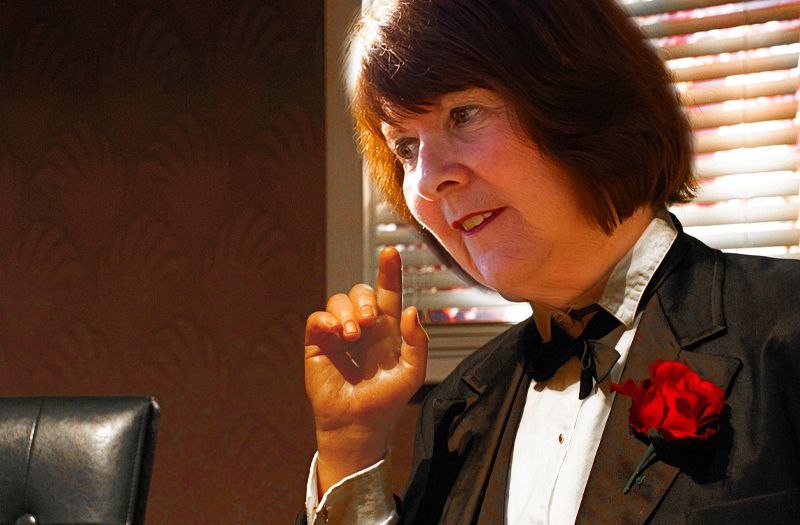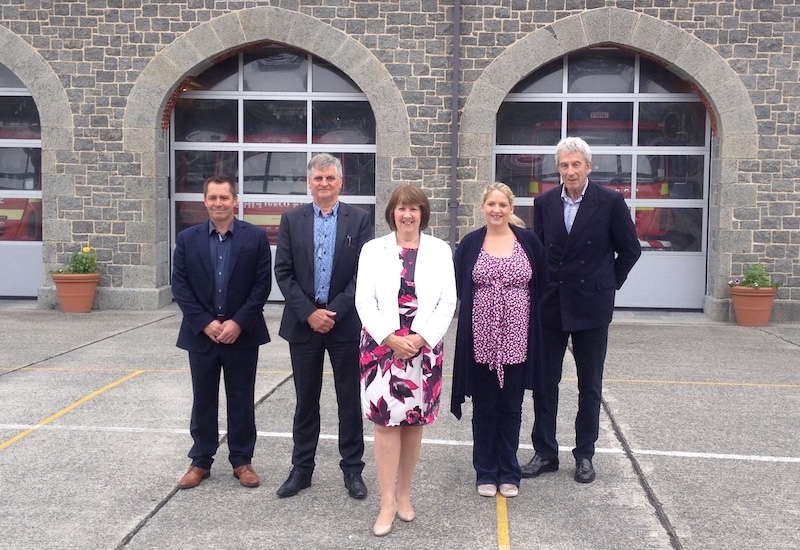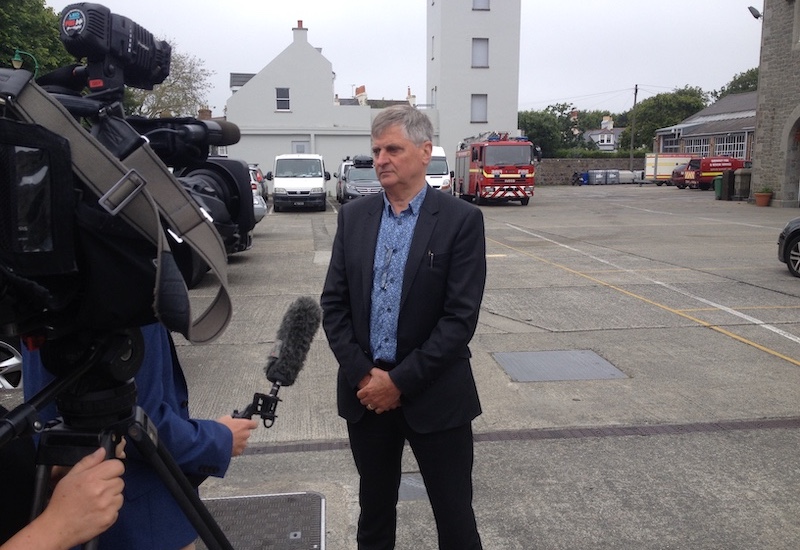

Home Affairs President Mary Lowe was portrayed as a "mafiosa figure" by the first draft of a "vicious, spiteful and absurd" governance report - and a former committee member has accused Policy & Resources of "deeply sinister" intent by wilfully damaging the reputations of their fellow Deputies.
Deputies Richard Graham and Rob Prow delivered personal statements yesterday on why they resigned following a governance report of the committee that was damning of the political members.
That review by governance expert Dr Catherine Staite has seen calls from Policy & Resources for Home President Deputy Lowe to stand down as they do not have faith in her committee's ability to work through recommendations that they have said they disagree with.
However, Deputy Lowe has said she has no intention of doing so - a stance that has been backed by Deputy Prow and Graham, who were heavily critical of how the review was carried out.

Although Home Affairs Members Richard Graham and Rob Prow have resigned from the committee, they continue to put up a united front.
"[Its] flawed methodology, and the sloppy way it was carried out, meant that the body of the report consisted of little more than a series of unsubstantiated hearsay assertions made against the political members, accompanied by the reviewer's highly subjective and speculative narrative," said Deputy Graham.
"There is also something deeply sinister in all this," he went on to say. "The first draft of this report was vicious and spiteful in tone, depicting Deputy Lowe as a sort of mafiosa figure, surrounded by four gutless, on-the-make rookies and ruling the roost of Home Affairs as Guernsey's very own Donna Corleone.
"This absurd part of the report was subsequently toned down, presumably on legal advice, but the point had been made. Here is a dangerous political device by which the States senior committee can knowingly deploy a sloppy, ill-researched and unevidenced report and thereby wilfully damage the reputations of fellow members of the States, undermine the committee's already improving governance and sew the seeds of mistrust at the very time when mutual trust needed encouragement.
"I am not denying that lessons from the past three years remain to be addressed by both politicians and officers at Home Affairs, nor that some relationships need mending. The tragedy is that this one-sided, poorly-researched report was the worst possible intervention in a process of improvement and restoration of trust, a process already well under way in the wake of the HMIC report and the response to it in cooperation with the new Head of Law Enforcement.
"In short, this report and P&R's use of it provide an example of the very worst governance."
Deputy Prow said he would not give currency to conspiracy theories, but that he had had contrasting experiences of Professor Staite's governance reports.
"I am the only politician who has gone through this twice, as a member of HSC last year and now as a member of Home Affairs. My experience is dramatically different.
"In the HSC report the outcomes of the interviews are in simple bulleted overview notes. The CHA report is different. Giving extended comment based upon the opinions apparently drawn, couched in defamatory language aimed at the committee. These far reaching opinions are neither proportionate nor fair and the background research is woeful. The opinions do not pass the evidential test required to make such public allegations.

Deputy Prow said the minutes reviewed by Professor Staite were "very selective" and represented only 6% of Committee meetings.
He also took umbrage to the reviewer's assertion that he "was not acting to achieve the best outcomes of the community I love with a passion", which he said was "frankly abhorrent".
"Also the idea that I was somebody who was, I quote, "passively virtuous, not willing to speak up when things go wrong and take action on the lack of integrity of others", is utter nonsense.
Separately, Mary Lowe responded to questions from Gavin St Pier by offering guarantees that the recommendations from the report would be implemented by the end of this term and said the States' senior committee should show some faith in their ability to do so.
Comments
Comments on this story express the views of the commentator only, not Bailiwick Publishing. We are unable to guarantee the accuracy of any of those comments.